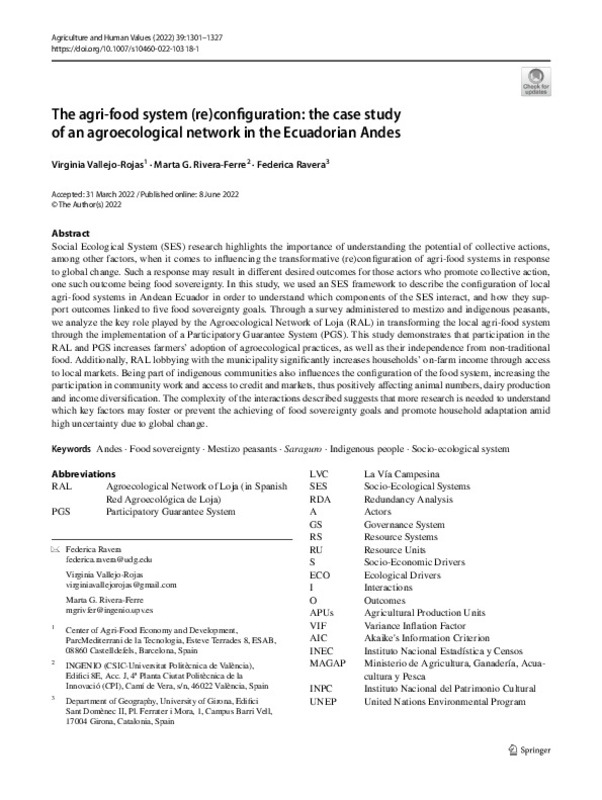JavaScript is disabled for your browser. Some features of this site may not work without it.
Buscar en RiuNet
Listar
Mi cuenta
Estadísticas
Ayuda RiuNet
Admin. UPV
The agri-food system (re)configuration: the case study of an agroecological network in the Ecuadorian Andes
Mostrar el registro completo del ítem
Vallejo-Rojas, V.; Rivera-Ferre, MG.; Ravera, F. (2022). The agri-food system (re)configuration: the case study of an agroecological network in the Ecuadorian Andes. Agriculture and Human Values. 39(4):1301-1327. https://doi.org/10.1007/s10460-022-10318-1
Por favor, use este identificador para citar o enlazar este ítem: http://hdl.handle.net/10251/201834
Ficheros en el ítem
Metadatos del ítem
| Título: | The agri-food system (re)configuration: the case study of an agroecological network in the Ecuadorian Andes | |
| Autor: | Vallejo-Rojas, Virginia Ravera, Federica | |
| Entidad UPV: |
|
|
| Fecha difusión: |
|
|
| Resumen: |
[EN] Social Ecological System (SES) research highlights the importance of understanding the potential of collective actions, among other factors, when it comes to influencing the transformative (re)configuration of agri-food ...[+]
|
|
| Palabras clave: |
|
|
| Derechos de uso: | Reconocimiento (by) | |
| Fuente: |
|
|
| DOI: |
|
|
| Editorial: |
|
|
| Versión del editor: | https://doi.org/10.1007/s10460-022-10318-1 | |
| Código del Proyecto: |
|
|
| Agradecimientos: |
Open Access funding provided thanks to the CRUE-CSIC agreement with Springer Nature.
We thank Narcisa Medina and Rovin Andrade, local leaders of the rural Andean parishes Jimbilla and San Lucas of the Loja canton; and, ...[+]
|
|
| Tipo: |
|









